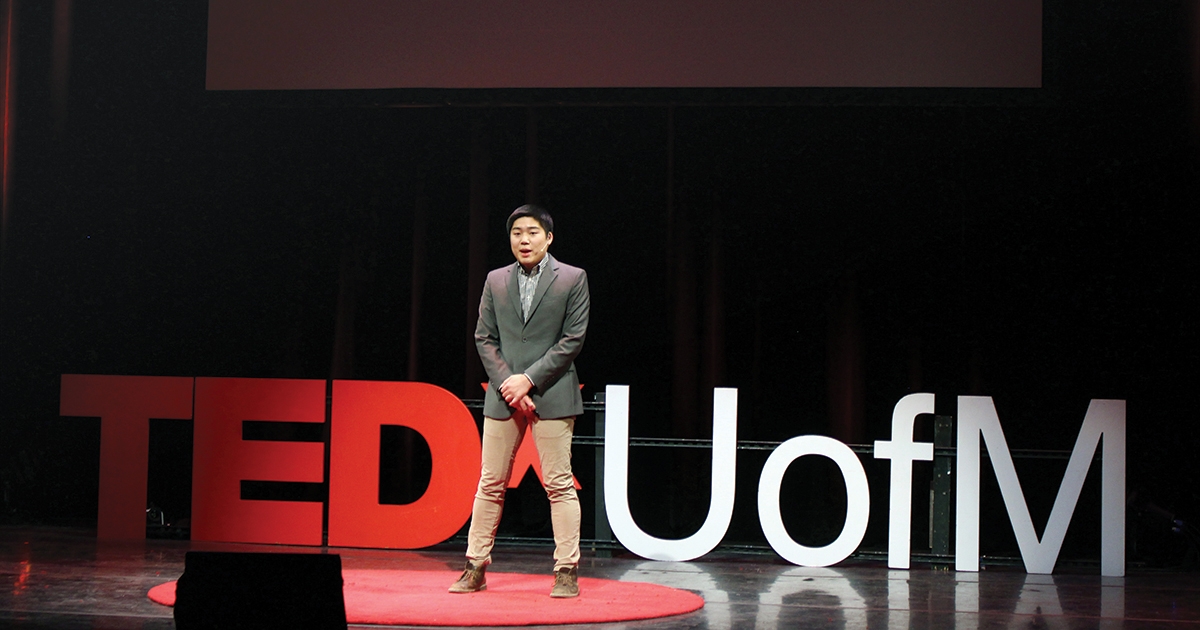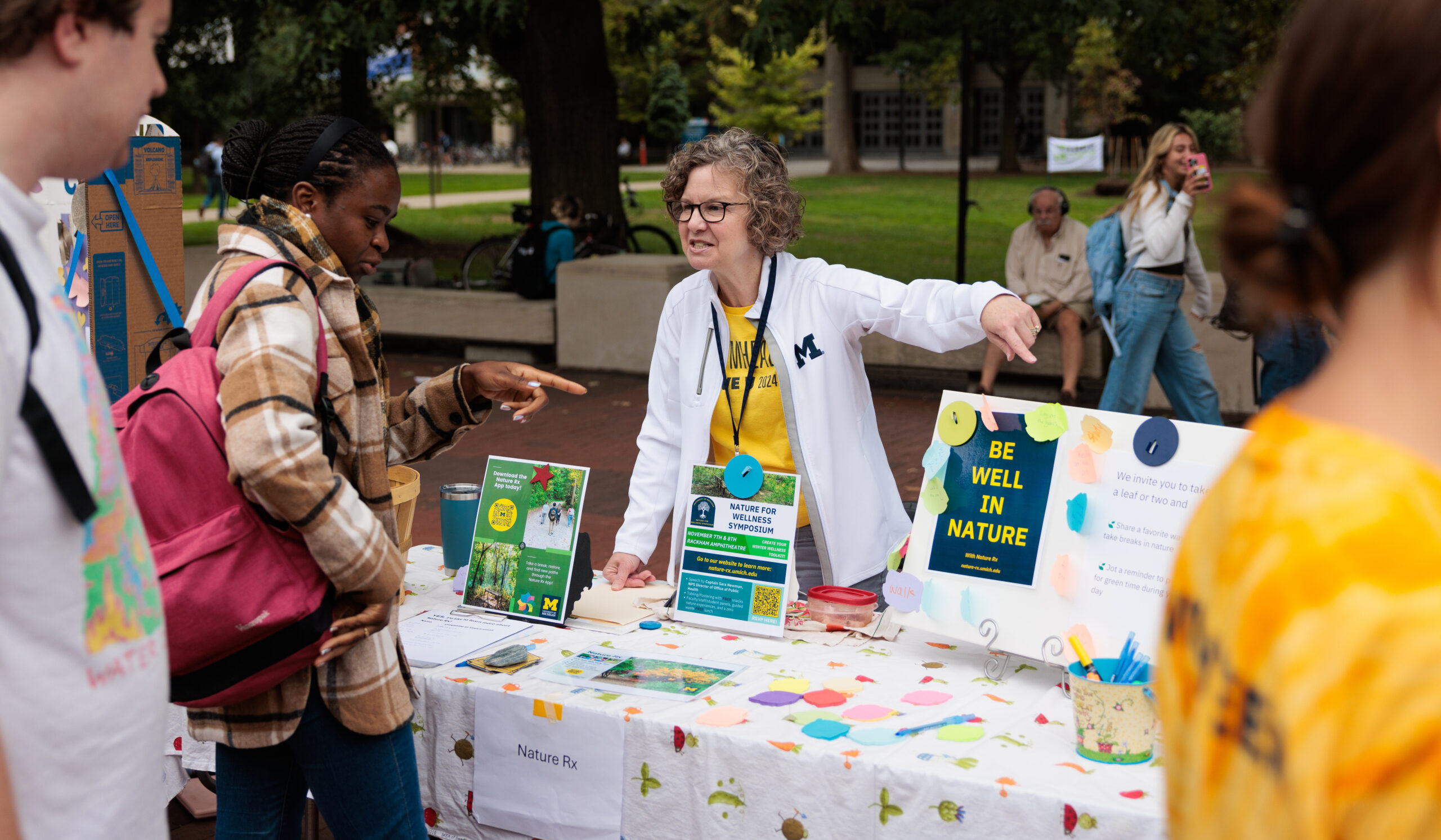It was a severe martial arts injury at age 15 that led Aaron James Chow, now a U-M senior, to write a program in high school that enables a prosthetic hand to move via neural signals. He also built the limb that works with the software. Since then, the electrical engineering major has created highly dexterous prosthetics that can be custom designed to the patient and 3D printed for just $100. Chow’s 3D, patented printing technology has earned him a place at tech conferences around the world. But on Feb. 22, he spoke much closer to home at the TEDxUofM conference in the Power Center. He was one of just two students invited to speak.
Michigan Alumnus gleaned the following in a conversation with Chow.
> AS A SOPHOMORE IN 2016, HE STARTED A CLUB, comprising students from a variety of STEM fields, that builds fully functional upper limb prosthetic arms for children. “It takes me maybe three years to build one, but a team of 50 students can do it in about three months. The idea is to give students the opportunity to work on something that has huge reach across many different teams.”
> CHOW’S OWN MEDICAL CONDITION resulted in his passion for programming prosthetics. After sustaining his injury, he discovered he had a condition that prevented his tendons and ligaments from healing properly. That led him to begin researching ways to help himself. In the end, however, physical therapy, medical injections, and metal bracing allowed
him to heal.
> ON THANKSGIVING, THE CHOW FAMILY discuss tech projects, not divisive politics. “We all have a tech background, so we talk about our new ideas, inventions, and the things we’re trying to build,” he says of his mother; father Hector Chow, ’78, MSE’79; two older brothers, who graduated from Georgia Institute of Technology; and younger sister, a student at Ohio State University.
> “CHOW IT’S MADE” IS his public Instagram page. “Hey, Wanna see something cool?” he asks his nearly 500 followers. On it, he showcases all of his eclectic creations, adventures, and random projects, like making holograms, building electric longboards, and 3D printing a fully functional bicycle made of high-performance plastic. One snapshot showed the antique, coin-operated horse he attempted to restore.
> AT U-M, CHOW LIKES TO collaborate with unsuspecting students and faculty outside his domain of study to broaden his intellect. Creating fiber-optic textiles is one of his many multidisciplinary collaborations. He and a student who is a business and textiles major decided to weave fiber-optic cables into a piece of custom fabric that was also touch sensitive. The result? A piece of fabric that changes color when you touch it.
> WHILE CHOW HAS WORKED for companies like Johnson & Johnson, Aurolab, and Autodesk, it is his accomplishments at U-M that have taken him to surprising places around the world. “I gave a robotics talk in Ukraine. Now, I’m talking with some of my friends over there to develop a few projects.”
> AFTER GRADUATION, Chow is applying for venture capital funding for some secret software startups. He is also exploring funding opportunities through the U-M Center for Entrepreneurship as well as the Department of Defense. Chow’s ideal career would be to introduce interesting 3D printing ideas to various companies. “My plan is to prove my idea works, hand it off to someone else, and then jump to the next idea. Everyone is saying ‘Oh, we can save the world with this,’ but no one is doing it. From what I’ve seen, tech has a lot more space to flex, and I want to help make this a reality.”
Junior Catherine Nouhan is an editorial assistant for Michigan Alumnus and a news reporter for The Michigan Daily.





